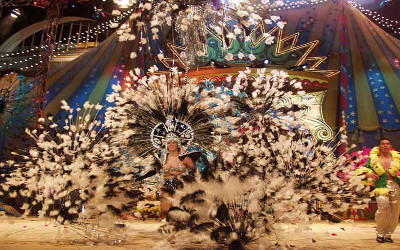¡Hola! :) Today I want to let you know something about Spain that a lot of people from other countries don't know, as I have seen.
Most of the people think that in Spain there is one language: the Spanish language. It looks evident and of course it is. But that is not the only language we have. Actually there are 4 languages in Spain! :)
You need to know that Spanish is the main language, the language which all Spanish people know and speak as a native language. But appart from it, there are big zones in Spain, groups of cities, that also have another official language, spoken by a lot of people of that places.
For instance, myself hehe. I'm Spanish but I come from Menorca, a little island where people also speak Menorcan, a dialect of the Catalan language which is spoken in the Balearic Islands, in Cataluña, and even in some little cities in France and Italy.
Here you have an example of each other first language that Spanish people could have depending on their birth places :)
I guess you are now newly surprised about Spanish culture if you didn't know this, and I hope that you like it! :D
¡Hasta pronto!
Fins aviat!
Vexo vostedes en breve!
Laster arte!
See you soon!
Most of the people think that in Spain there is one language: the Spanish language. It looks evident and of course it is. But that is not the only language we have. Actually there are 4 languages in Spain! :)
You need to know that Spanish is the main language, the language which all Spanish people know and speak as a native language. But appart from it, there are big zones in Spain, groups of cities, that also have another official language, spoken by a lot of people of that places.
For instance, myself hehe. I'm Spanish but I come from Menorca, a little island where people also speak Menorcan, a dialect of the Catalan language which is spoken in the Balearic Islands, in Cataluña, and even in some little cities in France and Italy.
Here you have an example of each other first language that Spanish people could have depending on their birth places :)
English:
Hello! How are you? I'm fine thanks, and you?
Spanish:
¡Hola! ¿Cómo estás? Estoy bien, gracias. ¿Y tú?
Catalan:
Hola! Com estàs? Estic bé, gràcies. I tu?
Galician:
Ola! Como está? Estou ben, grazas. Vostede?
Basque:
Kaixo! Nola zaude? Fina naiz, mila esker. Egin duzu?
I guess you are now newly surprised about Spanish culture if you didn't know this, and I hope that you like it! :D
¡Hasta pronto!
Fins aviat!
Vexo vostedes en breve!
Laster arte!
See you soon!










